All of us want to save taxes, but at the same time stay out of trouble with the IRS. In fact, I would hope we would even have a higher standard of being honest and ethical in the manner in which we all report our income, deductions and file our tax returns.
We live in an amazing country. Yes, it has its problems. But I don’t think many of us would trade our opportunities and freedom for citizenship in a lot of other countries.
Let’s be honest on our tax returns and pay our fair share – but not a cent more!
Here are the realities of what can happen if you push the envelope too far and get greedy in trying to save taxes by sacrificing your morals and standards.
IRS Enforcement and Penalties
Significant penalties may apply to those who file incorrect returns. The IRS doesn’t mess around with ‘cheats’ and those caught can suffer for years trying to pay back hefty penalties and interest including:
- 20 percent of the disallowed amount for filing an erroneous claim for a refund or credit (unchanged in 2025 under IRC 6676).
- $5,000 if the IRS determines a taxpayer has filed a “frivolous tax return.” This is a return that does not include enough information to figure the correct tax or that contains information clearly showing that the tax reported is substantially incorrect (IRC 6702; penalty remains the same in 2025).
- In addition to the full amount of tax owed, a taxpayer could be assessed a penalty of 75 percent of the amount owed if the underpayment on the tax return resulted from tax fraud (IRC 6663 – unchanged).
- Moreover, taxpayers may be subject to criminal prosecution and be brought to trial for actions such as willful failure to file a return; supply information; or pay any tax due; fraud and false statements; preparing and filing a fraudulent return and identity theft. The IRS Criminal Investigation division continues to actively pursue these cases in 2025, with increased collaboration with the Department of Justice.
1. Avoid Improper Claims for Business Credits.
Two credits often targeted for abuse by shady tax return preparers are the Research Credit and the Fuel Tax Credit. Each of these credits has specific eligibility criteria.
- Research Credit Scams. Improper claims for this credit generally involve a failure to participate in or substantiate qualified research activities and/or a failure to satisfy the requirements related to qualified research expenses.
- Fuel Tax Credit Scams. The Fuel Tax Credit is generally limited to off-highway business use or use in farming. For that reason, it is not available to most taxpayers. Still, the IRS routinely finds unscrupulous tax return preparers who have enticed sizable groups of taxpayers to inflate their refunds by erroneously claiming the credit. Improper claims for the fuel tax credit generally come in two forms. First, an individual or business may make an erroneous claim on their otherwise legitimate tax return. Second, identity thieves file bogus claims, often as part of a broader fraudulent scheme.
2. Frivolous Tax Arguments
They remain as a serious concern for the IRS and many fall victim to these concepts. Promoters of frivolous schemes encourage taxpayers to make unreasonable and outlandish legal claims to avoid paying their taxes. The IRS reminds people that time and again, these arguments have been thrown out of court. Examples of these common myths include:
- The First Amendment allows taxpayers to refuse to pay taxes on religious or moral grounds;
- The only “employees” subject to federal income tax are those who work for the federal government;
- Only foreign-source income is taxable.
Perpetrators of illegal scams, as well as those who make use of them, may face possible criminal prosecution. IRS Criminal Investigation works closely with the Justice Department to shut down scams and prosecute the criminals behind them. Don’t get talked into using a frivolous argument.
3. Failure to Report Offshore Funds Remains a Crime.
Taxpayers should remain wary of offshore avoidance schemes. Following the IRS intensifying efforts on offshore issues in recent years, many taxpayers have already voluntarily disclosed their participation in these schemes. The IRS conducted thousands of offshore-related civil audits that resulted in the payment of tens of millions of dollars in unpaid taxes. The IRS has also pursued criminal charges leading to billions of dollars in criminal fines and restitution.
Over the years, numerous individuals have been identified as evading U.S. taxes by attempting to hide income in offshore banks, brokerage accounts or nominee entities. They then access the funds using debit cards, credit cards or wire transfers. Others have used foreign trusts, employee-leasing schemes, private annuities or insurance plans for the same purpose.
The IRS uses information gained from its investigations to pursue taxpayers with undeclared accounts, as well as bankers and others suspected of helping clients hide their assets overseas.
4. Scams Luring Taxpayers into Fake Donations.
Using a tax deduction as bait, these fake charities often lure victims into making ineligible donations, ultimately leaving the unsuspecting donor in the lurch.
“Scam artists commonly use charities as a cover to lure honest people into providing money and sensitive personal information,” said IRS Commissioner Chuck Rettig. “Protect yourself, and make sure you are dealing with a reputable group before making a donation.”
IRS.gov has a search feature, Tax Exempt Organization Search, that allows people to find legitimate, qualified charities to which donations may be tax-deductible. Use this search engine if you are unfamiliar with the charity asking for money.
5. Inflating Deductions and Credits.
Taxpayers should watch for areas frequently targeted by unscrupulous tax preparers include overstating deductions such as charitable contributions, medical expenses, padding business expenses, or falsely claiming the Earned Income Tax Credit, Child Tax Credit and other tax benefits. Some taxpayers who prepare their own returns, as well as those who use unscrupulous preparers, may also pad their deductions and credits to inflate their refund or lower their tax bill.
Padding deductions and credits is part of this year’s “Dirty Dozen” list of common tax scams. Taxpayers may encounter these schemes any time, but many of them peak during the tax filing season as people prepare their tax returns or hire others to help with their taxes.
6. Falsifying Income and Creating Bogus Documents.
Some people falsely increase the income they report to the IRS. This scam involves inflating or including income on a tax return that was never earned, either as wages or self-employment income, usually to maximize refundable tax credits, such as the Earned Income Tax Credit (EITC). Others get caught up in scams disguised as a debt payment option for credit cards or mortgage debt. This scheme usually involves the filing of a Form 1099-MISC, Miscellaneous Income, and/or bogus financial instruments such as bonds, bonded promissory notes or worthless checks.
7. Be on the Lookout for Promises of Inflated Tax Refunds.
Con artists promising overly large refunds frequently prey on older Americans and low-income taxpayers and those who don’t have a filing requirement. They may also victimize non-English speakers who may or may not have a requirement to file a tax return.
Scam artists can use flyers, advertisements, phony storefronts or word-of-mouth to attract victims. They may even make presentations through community groups or churches. These unscrupulous individuals may dupe others into making claims for fictitious rebates, benefits or tax credits. They may also file a false return in their client’s name, and the client never knows that a refund was paid.
Cons may also target those with a filing requirement who are due a tax refund. This may be done by promising larger refunds based on fake Social Security benefits and false claims for education credits or the Earned Income Tax Credit (EITC), among others.
8. Tax Return Preparer Fraud.
The IRS reminds taxpayers to be careful when selecting a tax professional. Though most tax professionals provide honest, high-quality service, a minority of dishonest preparers operate each filing season perpetrating refund fraud, identity theft and other scams that hurt innocent taxpayers.
Tax return preparers are a vital part of the U.S. tax system. During tax-year 2016, the most recent year for which complete figures are available, about 53.5 percent of taxpayers used a paid preparer. Selecting the right tax professional is vitally important. Be aware that taxpayers are ultimately responsible for the accuracy of their tax return, regardless of who prepares it.
9. Identity Theft.
Tax-related identity theft occurs when someone uses a stolen Social Security number or Individual Taxpayer Identification Number (ITIN) to file a fraudulent tax return claiming a refund.
“Taxpayers should continue to protect their sensitive tax and financial data to help protect against identity thieves,” IRS Commissioner Chuck Rettig said. “The IRS and the Security Summit partners in the states and the private sector have joined forces to improve our defenses against tax-related identity theft, sharply reducing the number of victims. But we encourage taxpayers to continue to be on the lookout for identity theft schemes, including email phishing attempts and other tax scams.”
10. Phone Scams.
Criminals make unsolicited calls and leave voicemails with urgent callback requests claiming to be IRS officials. They demand that the victim pay a bogus tax bill by sending cash through a wire transfer, prepaid debit card or gift card.
Many phone scammers use threats to intimidate and bully a victim into paying. The phone scammers may alter or “spoof” their caller ID to make it look like the IRS or another agency is calling. The callers may use IRS employee titles and fake badge numbers to appear legitimate.
Remember, the IRS will never:
- Call to demand immediate payment using a specific payment method such as a prepaid debit card, gift card or wire transfer. Generally, the IRS will first mail a bill to any taxpayer who owes taxes.
- Threaten to immediately bring in local police or other law-enforcement groups to have the taxpayer arrested for not paying.
- Demand that taxes be paid without giving taxpayers the opportunity to question or appeal the amount owed.
- Ask for credit or debit card numbers over the phone.
- Call about an unexpected refund.
11. Phishing Schemes.
The IRS continues to see a steady stream of new and evolving phishing schemes as criminals work to victimize taxpayers throughout the year. Whether through legitimate-looking emails with fake, but convincing website landing pages, or social media approaches, perhaps using a shortened URL, the end goal is the same for these con artists: stealing personal information.
In one variation, taxpayers are victimized by a creative scheme that involves their own bank account. After stealing personal data and filing fraudulent tax returns, criminals use taxpayers’ bank accounts to direct deposit tax refunds.
Thieves then use various tactics to reclaim the refund from the taxpayer, including falsely claiming to be from a collection agency or the IRS. The IRS encourages taxpayers to review some basic tips if they see an unexpected deposit in their bank account.
12. Abusive Tax Shelters.
The IRS is committed to stopping complex tax avoidance schemes and the people who create and sell them. The vast majority of taxpayers pay their fair share, and everyone should be on the lookout for people peddling tax shelters that sound too good to be true.
When in doubt, taxpayers should seek an independent opinion regarding complex products they are offered. Remember, if it sounds to good to be true, it probably isn’t…but, if you are really excited about it, at least get a 2nd opinion from someone that is disinterested and you pay for their advice.
I know, this is a significant and lengthy list, but absolutely critical to be cautious of and aware of the risks. Please allow humbly allow me to encourage you to always be honest in your dealings and you’ll be rewarded ten-fold in the future – this means filing an honest tax return as well.









